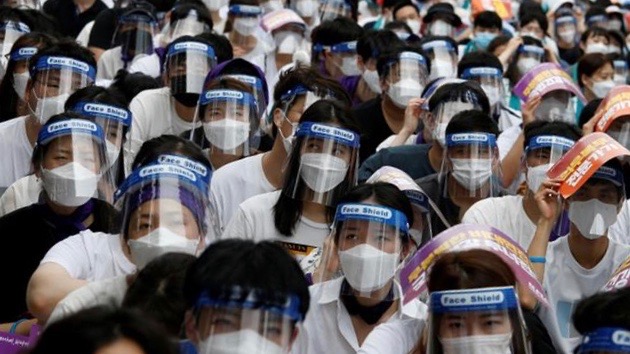The Democratic Party government in South Korea signed a deal with the Korea Medical Association (KMA) on September 4, Friday, ending a two-week long doctors’ strike in the country. A crucial part of the deal was the government agreeing to put on hold its controversial healthcare reforms during the course of the COVID-19 pandemic.
Thousands of doctors, medical interns and trainees and medical students in South Korea went on strike from August 23, protesting the Democratic Party’s healthcare reform plan introduced earlier this year. The uproar over the proposed reforms came at a time when the nation was grappling with a second surge in COVID-19 cases.
The agreement on Friday was signed by Democratic Party police committee chief Han Jeong-ae and KMA head Choi Dae-zip. The KMA is the largest medical association in the country, representing over two-thirds of resident doctors.
The deal will ensure a process to resume negotiations between the government and medical professionals once the COVID-19 situation stabilizes in the country. The Democratic Party has also agreed to invest in enhancing the existing medical infrastructure and improving the work conditions of trainee doctors.
The party has however not given up its proposed health reforms altogether. It has only agreed to discuss it with doctors’ groups before moving ahead. The healthcare reform plan sought to bridge the urban-rural divide in public healthcare in South Korea by increasing the number of doctors over the years. The reforms would have included increasing the number of medical college quotas and building new training institutions for medical professionals to work in rural Korea.
The plan was decried by both the KMA and the Korean Intern Resident Association (KIRA) as a rushed attempt by the government to increase the number of doctors without seriously addressing institutional problems. Doctors’ unions have argued that the urban-rural divide in public healthcare is due to the large-scale expansion of private healthcare at the cost of public healthcare.





